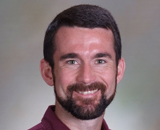 “If it ain’t broke, don’t fix it” goes the aphorism—and so would say any who trust complacently in the exponential growth of “evidence based” this or that in medicine. Des Spence, for one, disagrees. In a recent BMJ editorial he argues evidence based medicine (EBM) is broken, it is “now the problem, fuelling overdiagnosis and overtreatment.”
“If it ain’t broke, don’t fix it” goes the aphorism—and so would say any who trust complacently in the exponential growth of “evidence based” this or that in medicine. Des Spence, for one, disagrees. In a recent BMJ editorial he argues evidence based medicine (EBM) is broken, it is “now the problem, fuelling overdiagnosis and overtreatment.”
To the extent that one thinks of “EBM” as a consensus among medical and healthcare professionals that involves giving evidence ratings to every pronouncement, and adding the moniker “evidence based” to every product or guideline, I would agree. From the early discussions of taking an evidence based approach to critical appraisal that was advocated by Guyatt and Sackett in the 1990s, the “evidence based medicine” approach has evolved from an adjective describing critical thinking, to a near Leviathan of consensus that seems to buy into anything labelled “evidence based.” We have moved from worshipping what “the experts” say, to giving near universal acceptance to anything that comes with the statement “there is evidence that…”
However, if evidence based medicine (I mean this here as an adjective describing an approach to medical care, not the acronym “EBM” that is now nearly universal) is really about critical thinking, then, I would argue, it is far from dead or broken. Recent years have seen the development of the Preventing Overdiagnosis movement, and the work behind a Cochrane review on oseltamivir has been in part responsible for a push for more openness of pharmaceutical company data. These and other initiatives (which Des Spence acknowledges) have arisen out of the critical thinking that true evidence based medicine, focusing on the outcomes that truly matter to patients (ie, helping them live longer or better), aims to foster.
There will always be a tendency for any innovation or new approach to be co-opted (intentionally or not) into something else. But if we seek to keep to the ideals of evidence based medicine, critically evaluating and applying the best information to care for our patients, then we will do well in the long run. It takes effort to go beyond what the guidelines, experts, and adverts give us, but that work is part of medicine—and critical thinking about how to do a better job of curing, comforting, and caring is at the heart of being a doctor.
Competing interests: “I declare that I have read and understood the BMJ Group policy on declaration of interests and I have no relevant interests to declare beyond a passion for clear and critical thinking..”
William E Cayley Jr practises at the Augusta Family Medicine Clinic, teaches at the Eau Claire Family Medicine Residency, and is a professor at the University of Wisconsin, Department of Family Medicine.
